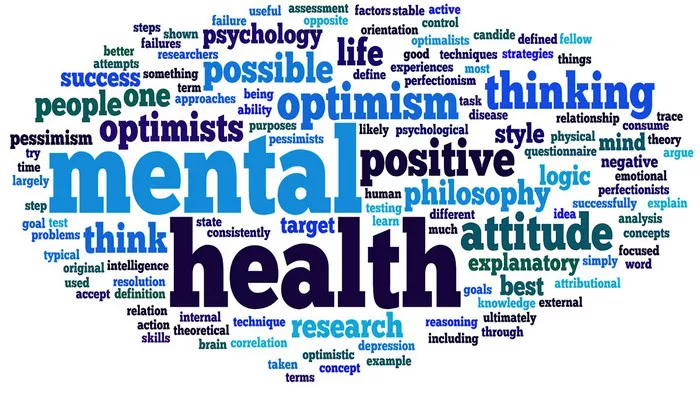In the realm of mental health care, psychosocial rehabilitation stands as a beacon of hope, offering individuals with mental illness the support, skills, and resources they need to rebuild their lives and achieve their full potential. In this comprehensive guide, we’ll delve into the world of psychosocial rehabilitation, examining its principles, practices, and profound impact on individuals, families, and communities.
Psychosocial Rehabilitation: A Holistic Approach to Healing
At its core, psychosocial rehabilitation is a holistic approach to mental health care that focuses on addressing the complex interplay of psychological, social, and environmental factors that contribute to mental illness. Unlike traditional medical models of treatment, which often prioritize symptom management and medication, psychosocial rehabilitation takes a person-centered approach, emphasizing recovery, empowerment, and community integration.
The goal of psychosocial rehabilitation is not simply to alleviate symptoms but to help individuals with mental illness develop the skills, coping strategies, and support networks they need to lead fulfilling, independent lives. By addressing the multifaceted nature of mental illness and recognizing the unique strengths and needs of each individual, psychosocial rehabilitation aims to promote resilience, recovery, and overall well-being.
Key Principles of Psychosocial Rehabilitation: Guiding the Journey to Recovery
Psychosocial rehabilitation is guided by a set of core principles that shape its approach to treatment and support. These principles include:
1. Person-Centered Care: At the heart of psychosocial rehabilitation is a commitment to honoring the dignity, autonomy, and unique experiences of each individual. By placing the individual at the center of the treatment process, psychosocial rehabilitation empowers individuals to take an active role in their own recovery journey, fostering a sense of ownership and agency.
2. Holistic Approach: Psychosocial rehabilitation recognizes that mental illness is influenced by a complex interplay of biological, psychological, social, and environmental factors. As such, it takes a holistic approach to treatment, addressing not only the symptoms of mental illness but also the underlying factors that contribute to its development and persistence.
3. Recovery-Oriented Care: Central to psychosocial rehabilitation is the belief that recovery from mental illness is not only possible but achievable. Recovery is viewed as a dynamic, nonlinear process characterized by hope, resilience, and personal growth. Psychosocial rehabilitation seeks to support individuals in their journey toward recovery by providing them with the tools, resources, and support they need to overcome challenges and achieve their goals.
4. Strengths-Based Approach: Rather than focusing solely on deficits and limitations, psychosocial rehabilitation takes a strengths-based approach, emphasizing the unique talents, abilities, and resources that each individual possesses. By harnessing these strengths, psychosocial rehabilitation aims to empower individuals to build on their existing skills and capacities, fostering a sense of competence and confidence.
5. Community Integration: Psychosocial rehabilitation recognizes the importance of social connectedness and community support in promoting recovery and well-being. It emphasizes the importance of fostering meaningful relationships, building social support networks, and facilitating community participation and engagement. By promoting community integration, psychosocial rehabilitation helps individuals develop a sense of belonging and purpose, reducing social isolation and enhancing overall quality of life.
Components of Psychosocial Rehabilitation: Building Blocks for Recovery
Psychosocial rehabilitation encompasses a wide range of interventions, programs, and services designed to address the diverse needs of individuals with mental illness. Some of the key components of psychosocial rehabilitation include:
1. Skills Training: Psychosocial rehabilitation often includes programs aimed at teaching individuals practical skills and coping strategies to manage the challenges associated with mental illness. These may include communication skills, problem-solving skills, stress management techniques, and activities of daily living.
2. Psychoeducation: Psychoeducation programs provide individuals with information and resources to help them better understand their mental illness, its symptoms, and its treatment options. By increasing knowledge and awareness, psychoeducation empowers individuals to make informed decisions about their care and advocate for their needs.
3. Individual Counseling and Therapy: Individual counseling and therapy sessions provide individuals with a safe and supportive space to explore their thoughts, feelings, and experiences, and work through issues related to their mental illness. These sessions may focus on building self-awareness, developing coping strategies, and addressing underlying emotional and psychological challenges.
4. Group Therapy and Support Groups: Group therapy and support groups offer individuals the opportunity to connect with others who are facing similar challenges and share their experiences in a supportive, nonjudgmental environment. These groups provide a sense of community, validation, and mutual support, fostering social connectedness and reducing feelings of isolation.
5. Vocational and Educational Support: Psychosocial rehabilitation programs often include vocational and educational support services to help individuals pursue their academic and career goals. These services may include job training, resume building, job placement assistance, and support with academic enrollment and accommodations.
6. Case Management: Case management services provide individuals with personalized support and assistance in navigating the mental health care system, accessing resources and services, and coordinating their care. Case managers work closely with individuals to develop individualized treatment plans, set goals, and monitor progress over time.
Challenges and Considerations in Psychosocial Rehabilitation
While psychosocial rehabilitation holds great promise for individuals with mental illness, it is not without its challenges and considerations. Some of the key challenges and considerations in psychosocial rehabilitation include:
1. Access to Care: Access to quality psychosocial rehabilitation services can be limited by factors such as geographic location, insurance coverage, and financial resources. Addressing disparities in access to care is essential to ensuring that all individuals have the opportunity to benefit from psychosocial rehabilitation.
2. Stigma and Discrimination: Stigma and discrimination surrounding mental illness can present significant barriers to participation in psychosocial rehabilitation programs and services. Addressing stigma and promoting public awareness and acceptance of mental health issues are essential steps in creating an environment that supports recovery and inclusion.
3. Coordination of Care: Effective psychosocial rehabilitation requires collaboration and coordination among various stakeholders, including mental health professionals, primary care providers, social service agencies, and community organizations. Ensuring seamless coordination of care can help maximize the effectiveness of psychosocial rehabilitation interventions and support services.
4. Cultural Competence: Cultural factors play a significant role in shaping individuals’ experiences of mental illness and their attitudes toward treatment. It is essential for psychosocial rehabilitation programs and providers to be culturally competent and sensitive to the diverse needs and backgrounds of the individuals they serve.
5. Recovery-Oriented Outcomes: Evaluating the effectiveness of psychosocial rehabilitation interventions can be challenging due to the subjective nature of recovery and the diverse range of outcomes that individuals may experience. Developing standardized measures and assessment tools that capture the multidimensional nature of recovery is essential for evaluating the impact of psychosocial rehabilitation programs and services.
Conclusion: Empowering Individuals, Transforming Lives
Psychosocial rehabilitation holds the power to transform the lives of individuals with mental illness, empowering them to overcome obstacles, reclaim their independence, and pursue their dreams. By taking a holistic, person-centered approach to treatment and support, psychosocial rehabilitation addresses the complex needs of individuals with mental illness and promotes recovery, resilience, and well-being.
As we continue to advance our understanding of mental health and expand access to quality care, it is essential to prioritize psychosocial rehabilitation as a cornerstone of mental health services. By investing in psychosocial rehabilitation programs and services, we can create a more inclusive, compassionate, and supportive society where all individuals have the opportunity to thrive.
[inline_related_posts title=”You Might Be Interested In” title_align=”left” style=”list” number=”6″ align=”none” ids=”7354,7351,7299″ by=”categories” orderby=”rand” order=”DESC” hide_thumb=”no” thumb_right=”no” views=”no” date=”yes” grid_columns=”2″ post_type=”” tax=””]

































